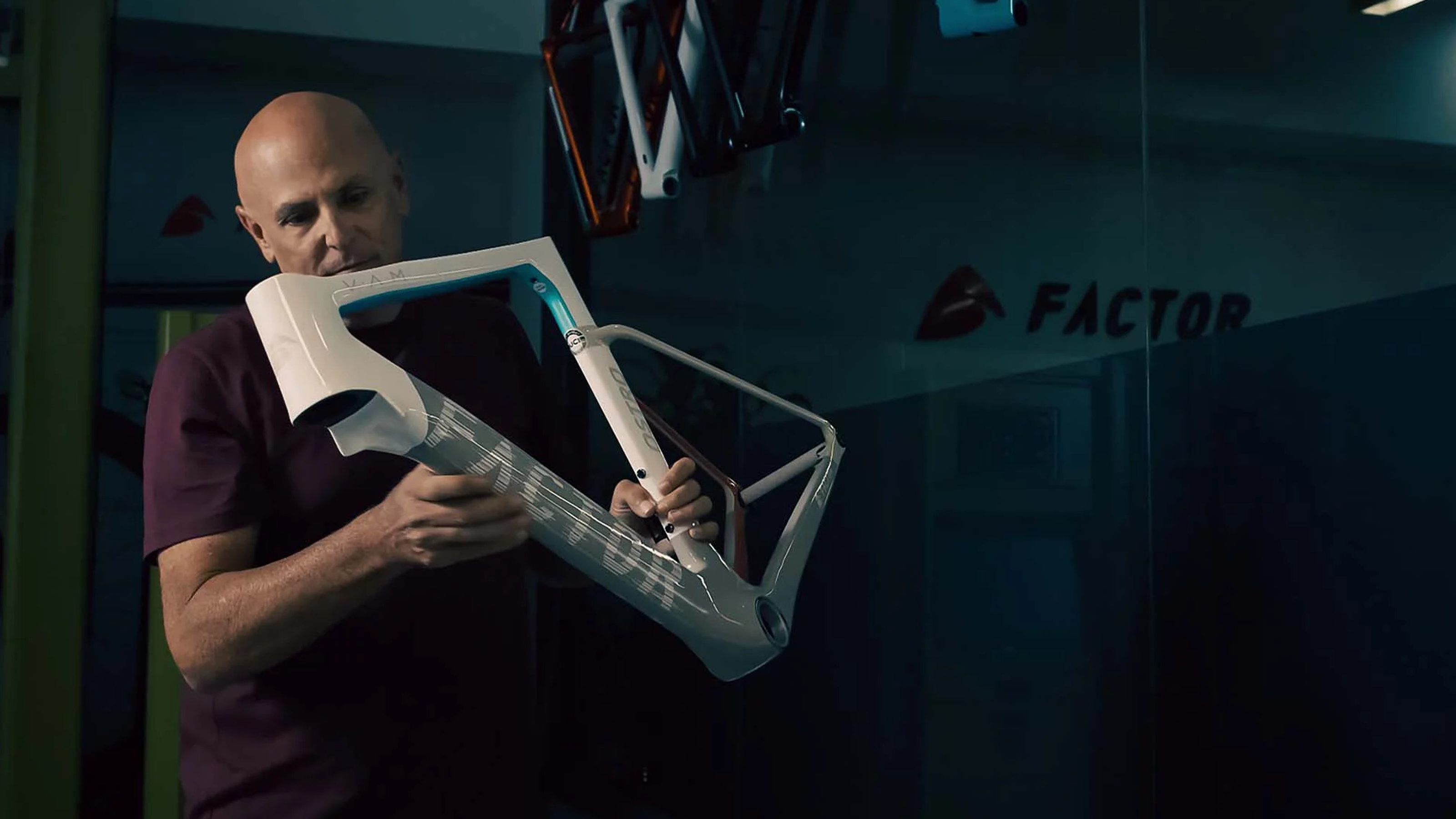

"My story in the bicycle industry started in 1996 when I first moved to Taiwan, and I worked for the first bicycle carbon fibre bicycle manufacturer in Taiwan, which pretty much made it the first actual mass production facility in the world."
Today, Rob Gitelis is the CEO of Factor Bikes, the premium bike brand behind Israel-Premier Tech, Human Powered Health, Team Amani, a handful of gravel privateers, and more recently, Aus Cycling.
He took over the company in 2016 and has grown it to be one of the best-known in the industry with a WorldTour presence, Tour de France podiums and numerous grand tour stage wins.
But before that, his storied career saw him drive forward the development of the Taiwanese carbon fibre bicycle manufacturing industry, own one of the handful of factories supplying, in his words, "60% of all carbon fibre frames," and manufacture products for Pinarello, 3T, Cervélo, Santa Cruz, Rocky Mountain, Cinelli and many many more.
In this interview, we spoke about Rob Gitelis the person, as well as the business leader. I learned what motivated him to take the plunge with Factor, and what keeps that motivation going day by day. We discussed his 'do things for the right reason' approach, including the brand's sponsorships, his loyalty to his employees, and how that loyalty was repaid during his struggles with mental health.
We spoke about the friends he'd made along the way, from Chris Froome and Mark Cavendish to Sir Paul Smith and Rapha founder Simon Mottram.
He outlined the pandemic from a Taiwanese factory's perspective, overviewed the current struggles facing the industry, and even explained how he feels about sponsoring Israel-Premier Tech amid the ongoing war in Gaza.
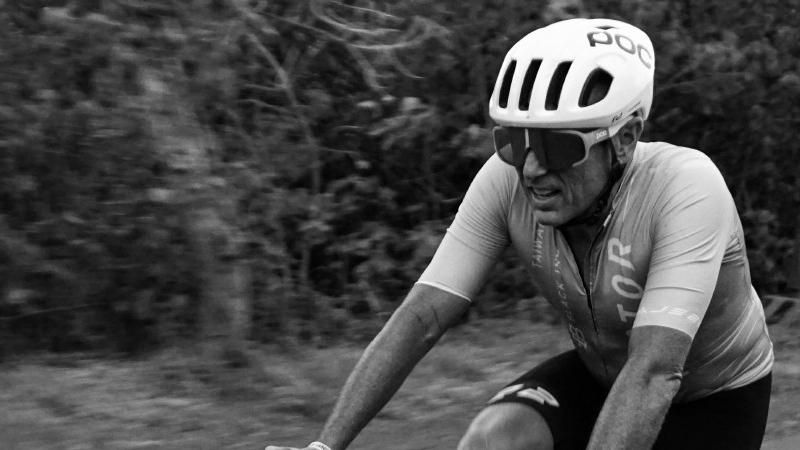
The beginning
"I grew up in Miami. I was lucky in the sense that cycling in America wasn't so popular when I was growing up, but Miami was one of the hotbeds."
"My next-door neighbour growing up was Chris Carmichael, who started Carmichael Training Systems and was one of those first Americans to ride the Tour de France [with Team 7-Eleven in 1986]. I always had him to look up to he's about five years or six years older than me, so I was always this little kid following him around."
"The bicycle was always such an important part of my life, that freedom, how to get away from home, and it was kind of what saved me from a very violent childhood. It gave me a great opportunity to expand my horizons to see the world."
Gitelis entered his first bike race at 12 years old; the Labor Day criterium in his hometown of Miami. Far from the prodigious success stories you hear about pro riders winning from day one and lapping the field three times along the way, Gitelis did not win. "Far from it," in fact, to use his own words.
As he puts it, he went on to become a "mediocre professional" throughout his 20s and like many in the industry, his subsequent career choice was driven by his passion for the bike. It was during an innocuous visit to his then-girlfriend in Taiwan in 1996 that his career switched from on-the-bike to off, and it was at a bike race where the opportunity presented itself.
"I was still racing bicycles, and I met a gentleman while I was there who asked me if I wanted to race the Tour of Taiwan with him. The race was several months later, and I was like, 'I wasn't planning on staying here that long. I'm just here for a few weeks.'
"But one thing led to another, I ended up staying and racing the Tour of Taiwan, and while racing, it led to this conversation with Advanced Composites about coming to work for them. And I thought maybe now's a good time to transition from bike racer to bicycle industry."
At the time Advanced Composites was working with carbon fibre, manufacturing golf club shafts, but it wanted to move into bicycles.
"I could see that, at that point, Taiwan wasn't yet the big maker of bicycle components, it was still all made in Europe and America, but I sensed that it was coming, and so I thought it was maybe a good opportunity to get in on some of the growing."
Interestingly, that personal passion for the bicycle - as both a rider and as a racer - is not only the driving force behind his career choice but also the motivation for many of the subsequent decisions and directions he's taken his brands.
"I stopped racing in 1996. I stepped away from the bike for a long time, really focused on my business, and then started to race again in 2011, and ended up as a professional yet again in my 40s. I raced the UCI Asia Tour. Had I not done that I would have never started Factor, because that was what rekindled my feelings for racing again. When I was rekindling my racing career, I was never satisfied with a lot of the bikes because I knew they could be better."
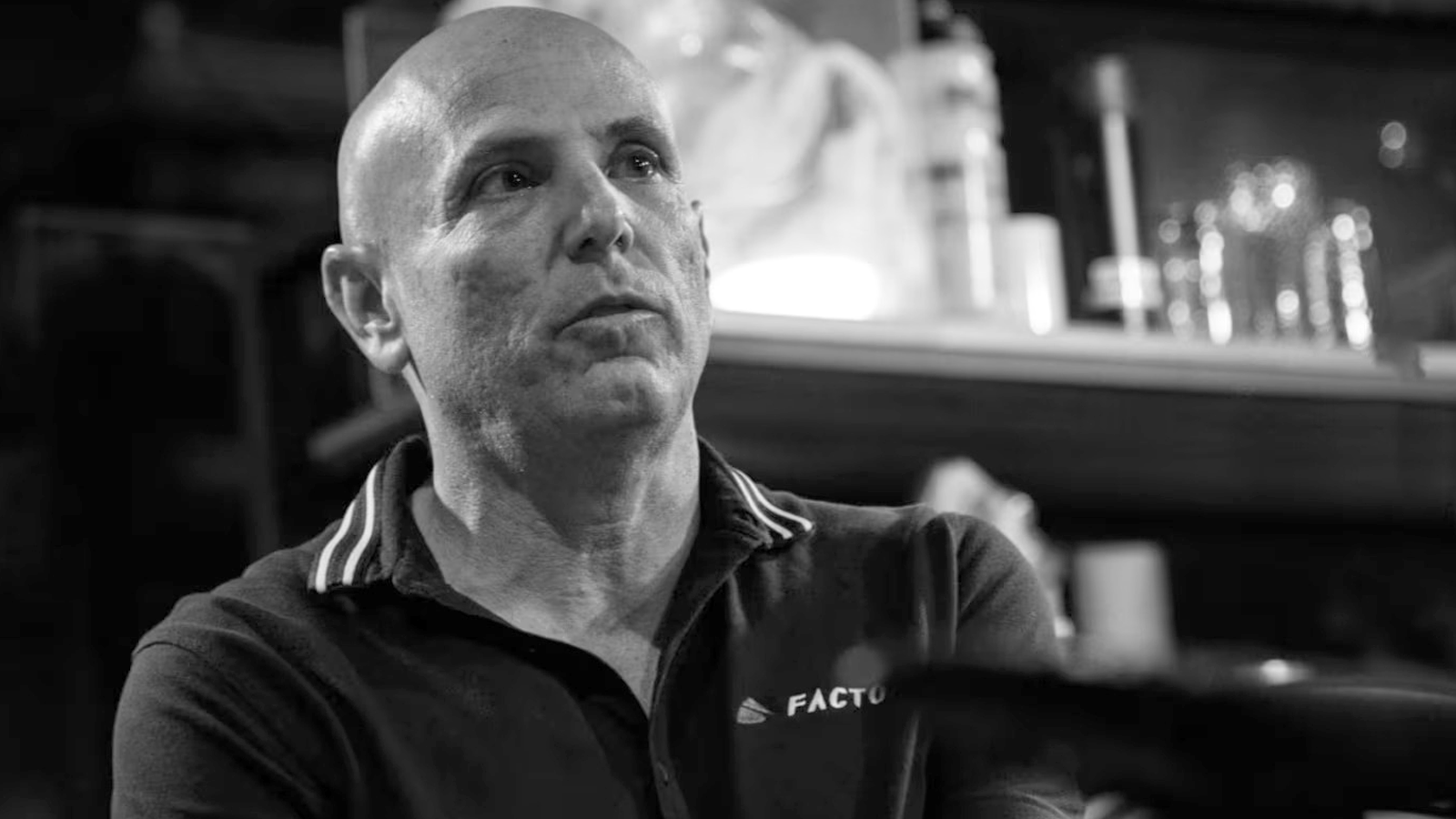
The entrepreneur
One overriding aspect of Gitelis' early days in the industry was entrepreneurialism, or perhaps better categorised as a willingness to fake it 'til you make it.
"Once I was in Taiwan, people would ask me 'Can you do this?' And I was like, 'Yeah, I can do that!' and I had no idea."
"In 1996, if we look at the carbon bike industry, Look was a brand, and there was Kestrel in the US that were selling carbon fibre bikes, and that was essentially it. So I was hired by Advanced [Composites] to build this bicycle division. I went and visited Specialized and a number of other brands, and they were all like 'We don't trust the material, we don't see the future in it.'
"So I went back and we just continued to slowly plod along with, firstly, carbon forks, [which] were accepted a lot earlier than frames.
"I left Advanced and I went to work for the aerobar company, Profile Design. At that time, it was just called Profile, Profile Design came later because we got sued over the name so they had to add the Design.
"I was in charge of moving all of the manufacturing from the United States to Taiwan, and so that was really interesting for me because again, it was one of those moments where I was asked 'Can I do this?' And I was like, 'Sure, I can do it' and I had no idea. I didn't know about aluminium butting, treatment, forging or any of those things. But I was a quick learner, and I figured a lot of it out."
Gitelis explains that his time at Profile enabled him to garner a presence and acceptance in the Taiwanese manufacturing industry, but also the bike industry as a wider space. In an era where he was in the minority, Profile's purchasing power gave him immediate credibility, which he used to help turn small handlebar, tape and grip manufacturers into industry leaders still in operation today.
"With that, I was able to start my own company. I had a partner, the name of the company is called PMG. It still exists today. It's a very famous manufacturing Trading Company in Taiwan. I was able to go to Italy and talk to Fausto Pinarello and say, 'Hey, would you like to make some things in Taiwan?' And at the time, he had Taiwan as this strange place, but he trusted me, so he agreed. It started with Pinarello, and then it was Gruppo, which was 3T, Cinelli and Columbus.
"We first started as a trading company, but very quickly, we discovered that to get the things made that people expected, we had to actually manufacture it ourselves. So we quickly became a manufacturer."
Interestingly, Gitelis then went on to explain how the process of manufacture has evolved over the years, explaining that just 10 years ago, 60% of the world's carbon frames were coming out of just a handful of factories.
"For [Italian bike and component brand] 3T, for example, they needed a stem. It was called the 4G Stem. At the time, there were probably only three or four factories that were making stems, but they weren't making that stem. So what we had to do was go to a tooling vendor and get a mould made. We had to give that mould to the forging lender, and then actually buy the forging blank from the forging factory. We would then have to give that forging to a machining factory, and then we would take it back to the machining factory and give it to a finishing factory. And then we would take it back again and assemble it, before we'd ship it off to 3T."
…Insert lost and confused expression on my face.
"That's how most manufacturing is still done in Taiwan. Very few companies actually do the start-to-finish processes. Usually, they pick one or two that they control, and then they outsource a lot of the others."
With that said, I chose to challenge Gitelis on the online commenter's favourite often-unsubstantiated claim that 'all frames are built in the same factory in the Far East', to see if there was indeed much truth in it.
"If we look at a carbon frame, for example, I would say that 10 years ago, there were probably five factories that were making maybe 60% of all of the carbon fibre frames. Now, there are a whole lot more carbon fibre factories, making different levels of product, but it was definitely like that for carbon frames not long ago. There wasn't one factory, there were about four or five, and I owned one of them.
When you look at bicycle components, whether it be handlebars, stems, or seatposts, now you can go to factories that are capable of making a fully finished product to the highest level so that you don't need to do the manufacturing for yourself anymore. You can just go and pick something out of a catalogue, or you can give them a design and they can make it for you."
With that in mind, I wanted to know if the expertise remained in-house, or whether big brands were coming to the factories and asking for their advice on what's good.
"Many of the big brands don't know how to make a frame, but they know how to quantify what it is that they want. They could go to the factory and they would say 'we want this weight, we want this stiffness, we want it to pass these tests, and we want it to look like this.' That's what most of the big brands and their engineering teams are able to do. They're not able to sit down and actually manipulate the laminate structure to achieve those goals. Many will say they can, but that's left up to the factory.
"So when you're looking at someone like a Cervélo, for example, they will come and they'll give you all these parameters, and maybe you'll have to iterate 20 to 30 times to be able to achieve their goals.
"Then you'll have another brand that will come along and they'll be like, well, this is the shape we want. And then you'll be like, well, what are the performance targets? And they have no idea. So that'd be like two iterations and you're good to go!"
Somewhat unexpectantly, I asked if he'd dish the dirt on which brands were taking this shortcut approach.
"I can only speak for those brands that I worked with. But BH, for example, when they were sponsoring AG2R, we were building the bike for them and they just wanted to make sure it didn't break. And so it was like two iterations, send it off, they were happy. Hardly any work!"
Curious about his mindset in those moments, I asked whether Gitelis and his team would ever go back to a brand with suggestions to improve the end product.
"This was one of the things that drove me to start Factor was I would go back to the brands and I would say: 'It costs x amount of money, and if you spent another $25, $30, $50, it could be 25% better,' and they would always say no. Always unwilling to spend the extra money. They would say, if we spent $50 more now, it's going to cost $500 more in retail. As a manufacturer, I never understood that; to me, it was $50.
"They would always seem very, very strict about cost. It would make me very frustrated, I was always like, 'Don't you want to make the best product possible?' I think the answer was always 'We want to make the best product possible… for this price.'
"We're talking $25, $50. Just don't pass it through, just absorb it as a brand knowing that you're providing a much better product, which ultimately will lead to more sales down the line."
Do things for the right reason
Gitelis' relationship with Factor began years before his eventual ownership. The brand's origins began at the automotive company, BF1 Systems, in Norfolk, England. The founder, John Bailey, was already in touch with Gitelis to consult on geometries, and when the brand launched the Vis Vires – an aero road bike with wild bayonet-style double fork complete with an integrated stem – it was Gitelis' factory that built it.
But with his renewed passion for racing and his belief that he could make a better bike than those he was commissioned to, he became interested in the prospect of owning his own brand. Upon learning that BF1 Systems was too busy with their core business to really get into the bike industry, he approached the Factor brand to ask if they were willing to sell their IP.
The Factor brand was relaunched at the Tour Down Under in 2016, complete with sponsorship of AG2R, and despite his excitement, it snowballed much more quickly than he planned.
"I was originally partnered with Baden Cooke, the former Green Jersey winner [at the Tour de France], and another entrepreneur from Melbourne. Very quickly, they both ended up not being able to follow the business, so it ended up totally in my hands.
"Originally, when I agreed to do it, it was going to be on the side. I was going to be doing my contract manufacturing, and Factor was going to be a customer. But very quickly, it became a lot more, and maybe more than I expected. I thought that I wasn't planning on running this brand I was just planning on manufacturing for it.
Once again, his 'fake it 'til you make it' entrepreneurialism took over, and Gitelis was forced to learn as he went.
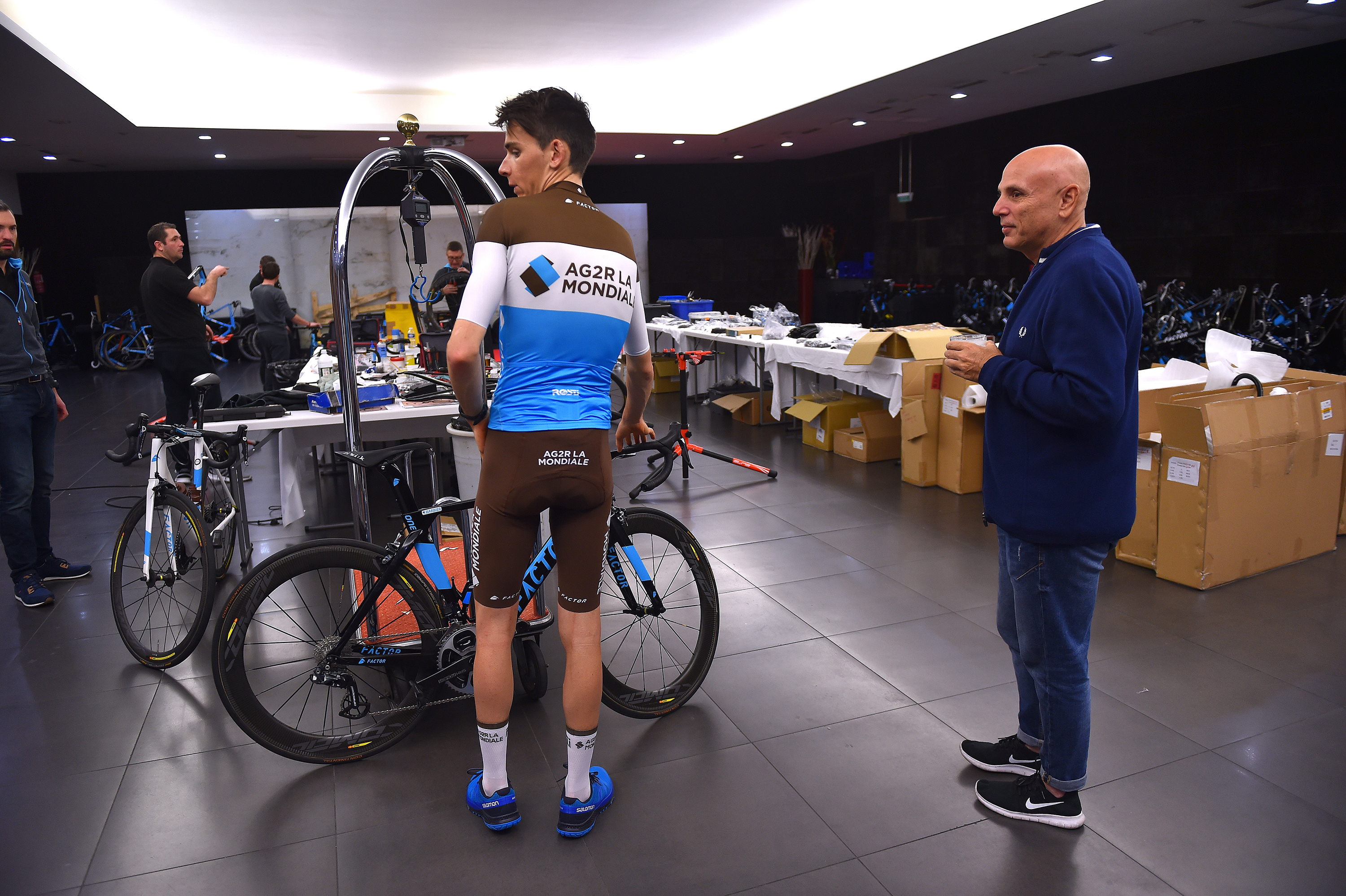
"I knew a lot about building bikes and I knew I could build a really good bike, but I didn't understand the whole dynamic of having marketing, a sales channel, and all of those things. That took a few years, but after just nine months we sponsored AG2R and then got third at the Tour de France with Romain Bardet. That really put the brand on the map.
"Around 2019 was the first time the company turned a profit, and it's been pretty solid ever since."
Business being "pretty solid" between 2019 and today is, of course, massively simplifying a five-year situation, but it's not a description that many other bike brands would be able to land on. Since COVID-19 hit in early 2020, the industry has been tumultuous, to say the least. Industry leaders such as Wahoo and Zwift have faced huge rounds of layoffs, Specialized has had its own too, while smaller brands, such as UK distributor Moore Large, have folded entirely. Given that statement, I had to ask how Factor had bucked the trend.
"In my mind, [Factor's] employees all belong to me, I never believe in making an employee redundant if a business isn't doing well, I just absolutely don't agree with that way of working. My employees have been with me for 15 years already, I wasn't going to start changing anything now. I already bought all the material sitting there, and it didn't cost any different to make bikes or not make bikes, so I just told everybody to just keep working, although there was no demand.
"All of a sudden, on our side, the demand picked up more quickly, and we had product to sell, so I think that we were lucky in that regard.
"Almost all of my friends who had carbon fibre factories in Asia, they all got the same messages from brands; 'Stop everything, cancel all the orders, we don't want anything.'
"Everybody was super worried, saying 'I have all of this material and this product,' and they started to let go of their employees, and hunker down. Nobody knew what was going to happen. And then all of a sudden, three or four months later, everybody started saying 'We need bikes!' And all the factories are like, 'What do you want me to do?'
"It just became this just horrible, self-fulfilling prophecy. I remember SRAM came to me and they're like, 'Anything you order now is going to be delivered in two and a half years.' I'm thinking 'How do I plan for two and a half years?' You put in orders because you didn't want to be left out, but at the same time, it's like, how can I plan an order two and a half years from now?
"Then the whole thing starts to slow down, all of the manufacturers have caught up on delivery, and now they're telling everybody 'You ordered this, you need to take it.' It's a big mess."

Gitelis adds that Factor's fortunate position of owning its factory helped it to continue manufacturing, innovating, and launching new bikes during the pandemic years, but he also attributes his success to a decision he took 17 months ago to disconnect from what he calls "outside influences."
"We haven't changed any of our direction because of outside influence from the industry. To be honest, on the personal side, about a year and a half ago, I decided to completely disconnect. I haven't listened to a podcast, I haven't watched the news broadcasts, I haven't read the newspaper, and for 17 months, I've done everything based on what I think is best for Factor without worrying about any of what's going on on the outside.
"A lot of the decisions that I made prior to that were always based on too many outside influences – 'This brand is doing this, the economy is doing this, this guy is running for president again in America' – and I just didn't like that all that would influence the way I ran my company. And so I decided to just turn it all off."
His earlier mention of redundancy was a pertinent one. Our conversation took place just a few days after the eCommerce retail giant focussing on cycling, WiggleCRC, told its entire workforce that they were being made redundant amid ongoing administrative proceedings. Upon questioning Gitelis' sentiment, he doubled down on his position.
"I have so many employees that are going on over 20 years, with me from one company to another to another, one factory to another. I think the most important asset you have is always your employees. I've never made anyone redundant because we made a little less money than last year, that bothers the hell out of me."
Upon listening to Gitelis explain this, it strikes me that the happiness and security of his workforce is one of the motivations that drive him. Could this be the driving force that gets him out of bed each morning? Gitelis only half agrees.
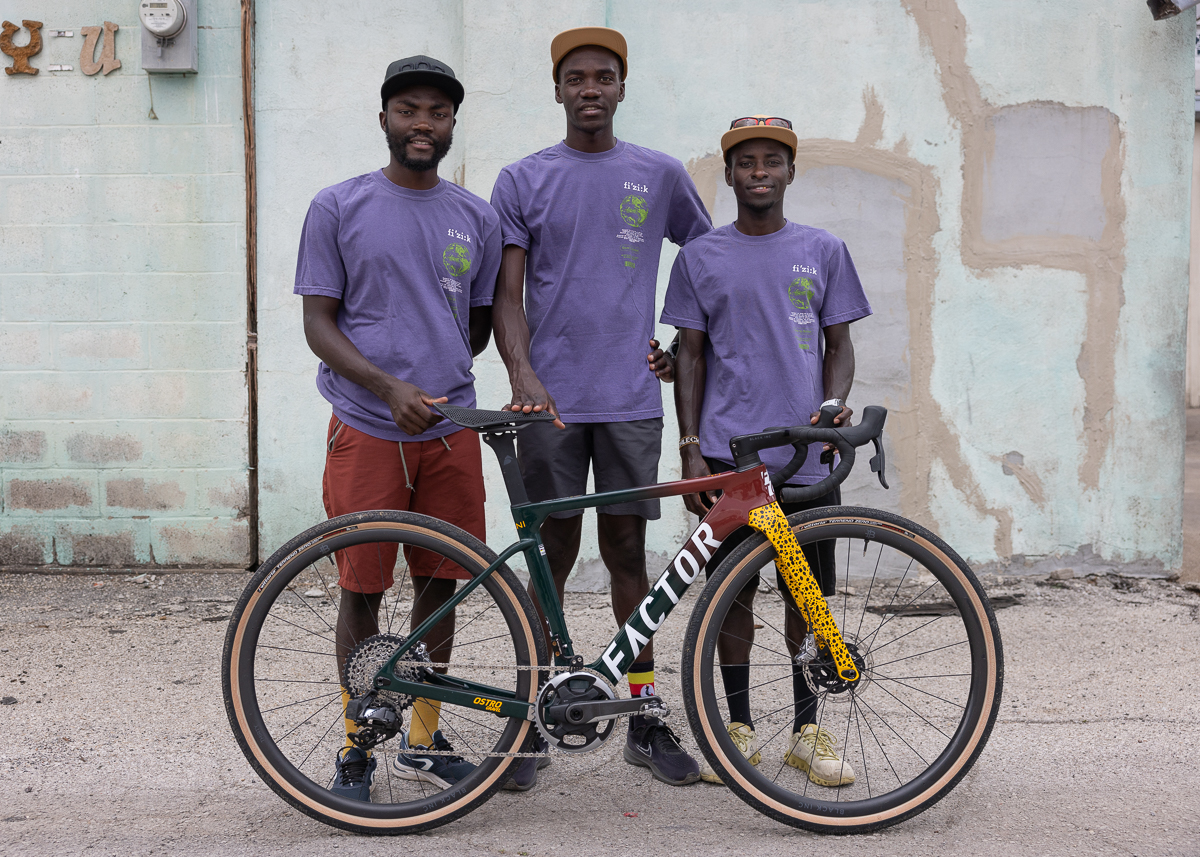
"I think that we just do things for the right reason because it's the right thing to do. We sponsor Team Amani; we've been with them for three years now. Three years ago, when they first approached me, it was Ian Boswell who introduced me. Ian works for Specialized; he didn't introduce Specialized, he introduced Factor. I asked him why and he said 'I believe you'll do the right thing by them.'
"We also have more women's teams than any other bike brand [Ed: in 2024, Factor sponsors just one WorldTour team - Human Powered Health]. It's not a ploy to try to sell more women's bikes, it's because it's the right thing to do."
Gitelis goes on to explain that even though this adds to the cost of each bike, he'd rather lose customers than forego the opportunity to make a longer-term difference.
This mindset, and the mention of sponsorship, led me to think about Israel-Premier Tech. The team is explicitly tied to the nation currently at war in a conflict that the UK Human Rights charity, Amnesty International, describes as "unprecedented," blaming Israel's "ruthless bombardment" for the death of over 28,000 Palestinian Civilians in Gaza in the space of four months. I wondered whether Gitelis felt any pressure to rethink his position as sponsor of the team.
"On our social media, we've been attacked by people that say 'Why are we supporting this regime?' We've seen riders from Israel-Premier Tech attacked on start lines; not quite as much as perhaps we expected, but I think it will get worse before it gets better.
"I feel like it wouldn't be right to stop. I am Jewish myself, but that's not why I sponsored this team. I think it's an unfortunate situation that we're all facing now, but I think that stepping away wouldn't be the right thing for us to do.
"We do have to tone down our marketing, it's a little less IPT-centric.
"The team has the name Israel because Sylvan Adams wants to promote the nation. But Israel the country… they're not a sponsor of the team.
"I think that people understand that we're a bike company for the most part. We're not condoning what's happening there."
Famous faces, friends in high places, and imposter syndrome
The introduction of Sylvan Adams' name, described by multiple sources as a billionaire businessman, got me thinking about the people Gitelis surrounds himself with.
The above photo from his Instagram, dated November 2023, shows him sitting in a restaurant with his arms around sprinting rivals Peter Sagan and Mark Cavendish, as well as four-time Tour de France winner Chris Froome. Another shows a coffee meeting with Rapha's founder, Simon Mottram, and he name-dropped British designer Sir Paul Smith, Spanish three-time world road race champion Óscar Freire, and even world-famous DJ Pete Tong.
"I got to know some of the great entrepreneurs and great minds of our industry, and I've always been behind the scenes supporting them. It was only eight years ago that I decided to step from behind the scenes to a front-and-centre role. I've watched a lot of people build some great brands, so I've had some really good mentors."
Given his disconnect from news, media and social media mentioned earlier on, I wondered whether the pressure of being surrounded by such high achievers was a contributing factor to Gitelis' decision.
"I did have a little bit of a mental health issue a year and a half ago. It was more related to everybody coming to me and telling me what an amazing brand I created, and those people not understanding the sacrifice that went into it.
"I wouldn't say I had impostor syndrome, I would say the exact opposite. I would say I don't feel comfortable when people are always congratulating me like, 'This bike is amazing, the brand is amazing.' Things like that made me feel uncomfortable and it was one of the things that made me withdraw for quite some time.
"I feel a lot more comfortable about it again [now], but I didn't at the time. I think a lot of times, people see the Instagram version of your life which has you at this bike race or this place, and they don't understand the sacrifices that my family make, that I need in order to achieve these goals. Sometimes they're a bit unhelpful."
Repaying the loyalty
"I had a very strong team that understood what I was going through and they all stepped up, and they covered for me, so I think that was very lucky in that regard.
"It's funny, I was speaking to [British former pro cyclist] David Millar. I was telling him about what I was going through and he's like, 'Oh, I know the perfect person you should speak to,' and he introduced me to a therapist that I worked with for nearly a year."
This openness about mental health further aligns with Gitelis' approach of caring for his employees and doing the right things for the right reasons, and it's something that he wants his workforce to understand concerning their own mental health.
"For our last company-wide meeting, which was last November, I spoke to everybody and I told them what I went through. I want them to be cognisant that when you start to feel yourself going too far, to know that you can pull back and you can ask for help. And that you can ask for people to assist if you feel overwhelmed."
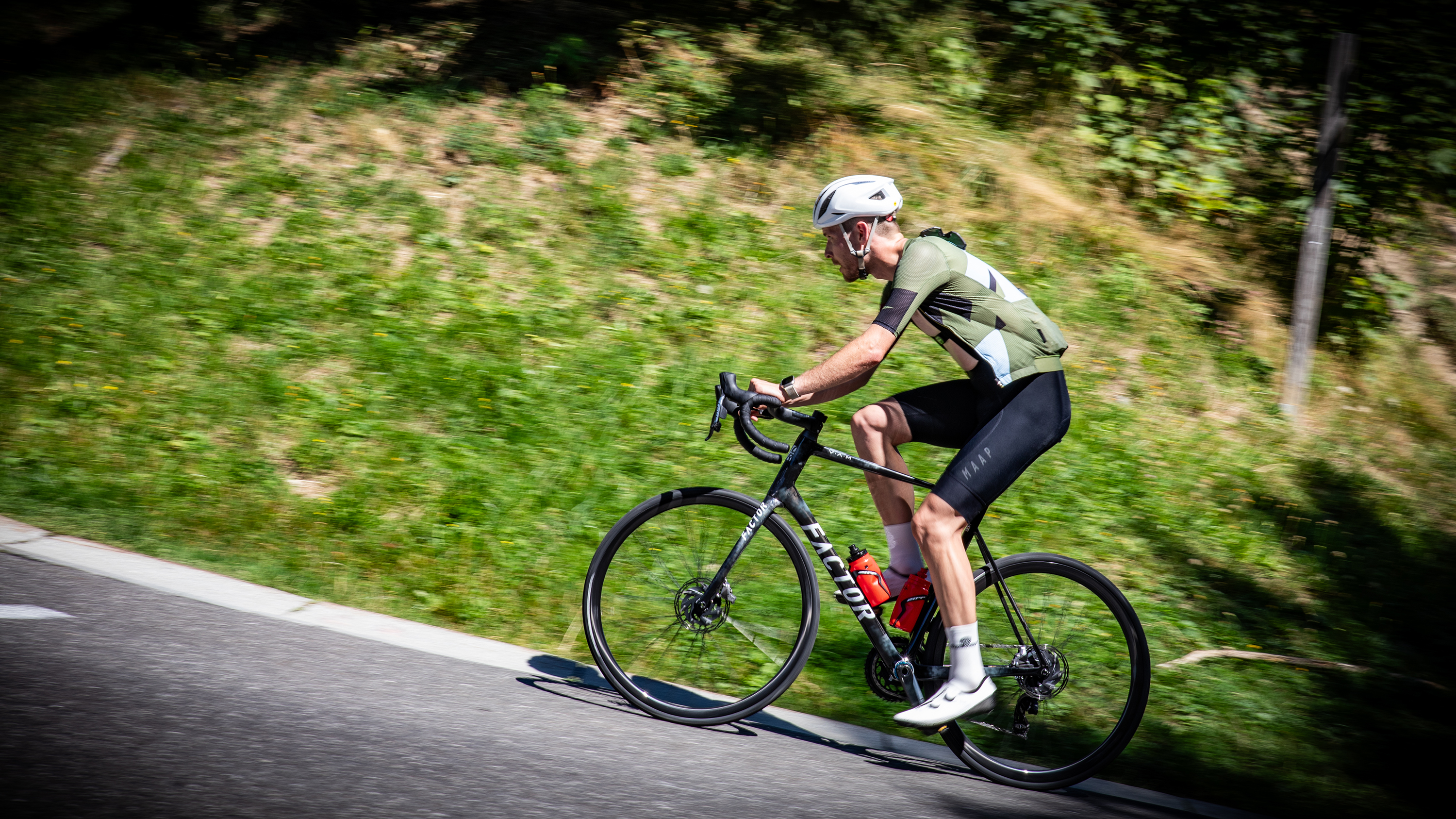
The future
Gitelis' passion for his business appears to still be burning brightly inside, so it's no surprise to hear that when I ask about his five-year goal, his response is "I'm not planning on leaving," but he does suggest a growing realisation that time is passing by, saying "I need to accept that I will age out."
"I'm planning on doing the Migration gravel race this year. Can I do that five years from now? I'm not sure.
"I think that's also one of the things that came with recognising mental health was that there were too many things that I always wanted to do, but I always like, 'Oh, next year, next year.' But the next thing you know, you're 55 years old.
"There's this thing called the cherry blossoms in Japan and I've always wanted to see it. I've lived in Asia for 30 years and never seen it because it always overlaps with Taipei Bicycle Show."

The tradition of hanami - or 'cherry blossom viewing' - is so strong in Japan that the Japanese Meteorological Corporation will release annual predictions for when they are expected to bloom, and their progress is tracked daily on national news broadcasts. Tourists will flock to see the pink-hued panoramas, and festivals will pop up with locals enjoying picnics, barbecues, and even live music.
But the pink petals endure for a mere 10 to 14 days, so as Gitelis contemplates his future and begins to think about "ageing out," the cherry blossom serves as a poignant metaphor for the fleeting nature of our time on this Earth.
With this in mind, last year Gitelis told his team he wouldn't be attending the Taipei show, and instead went to Japan.
"I'm so happy I went," he concluded.








